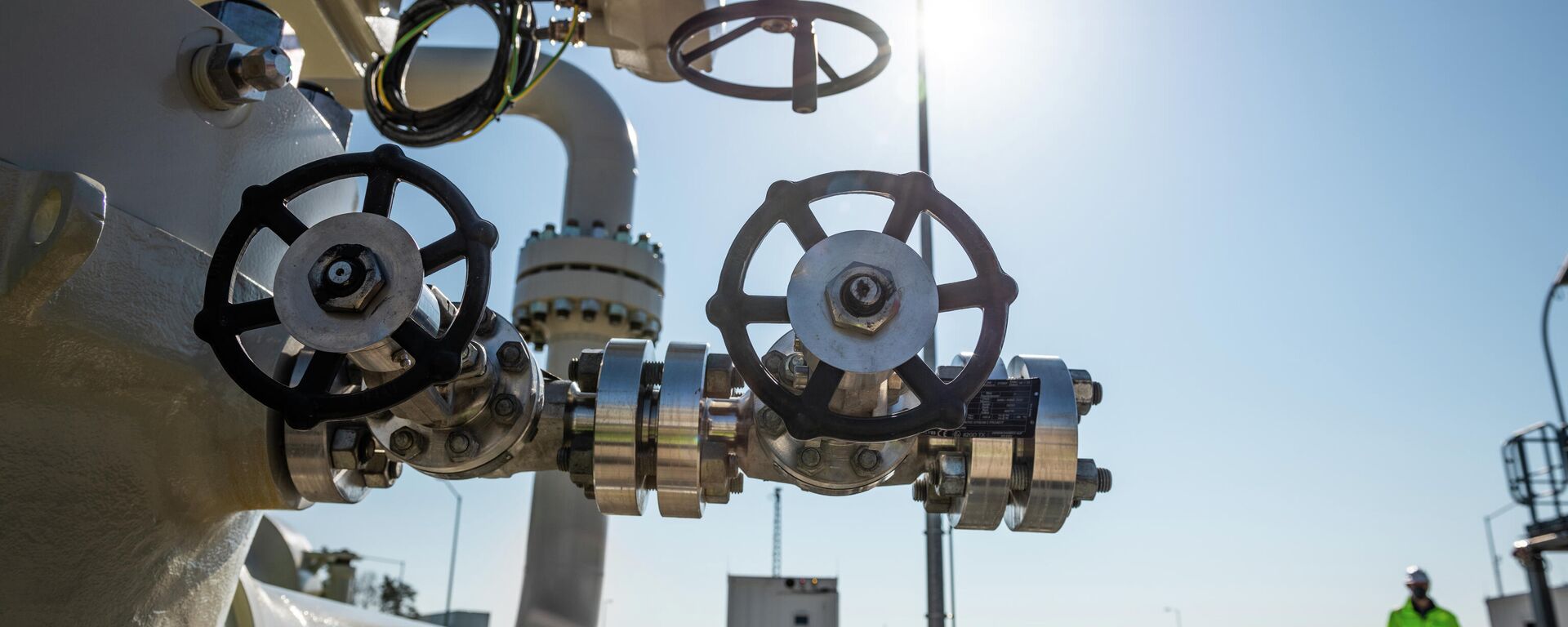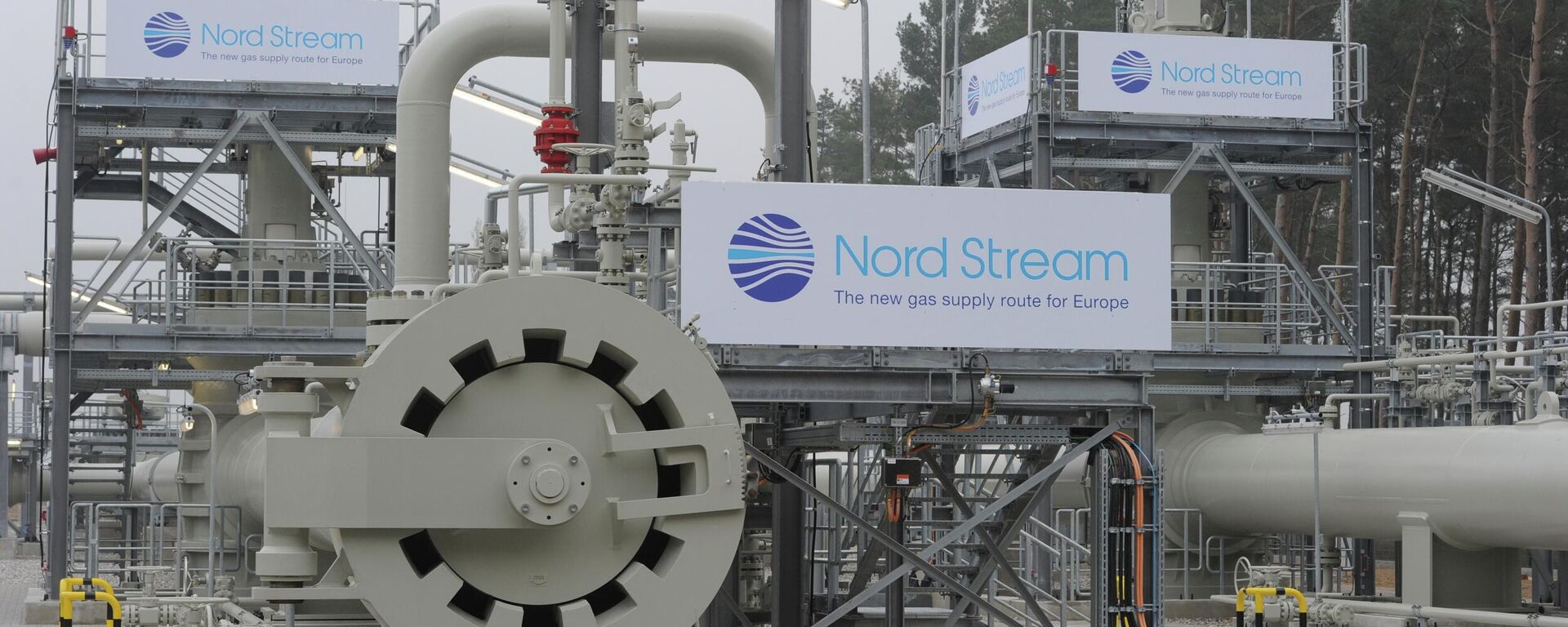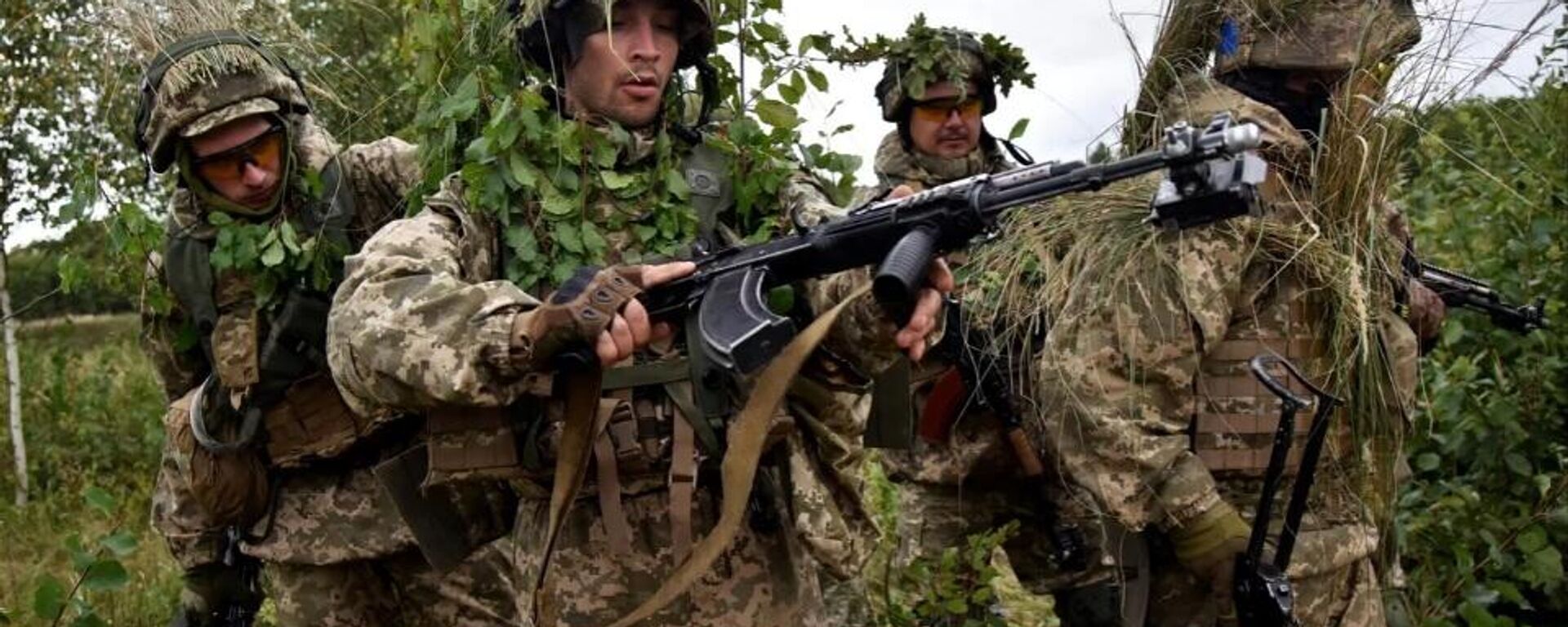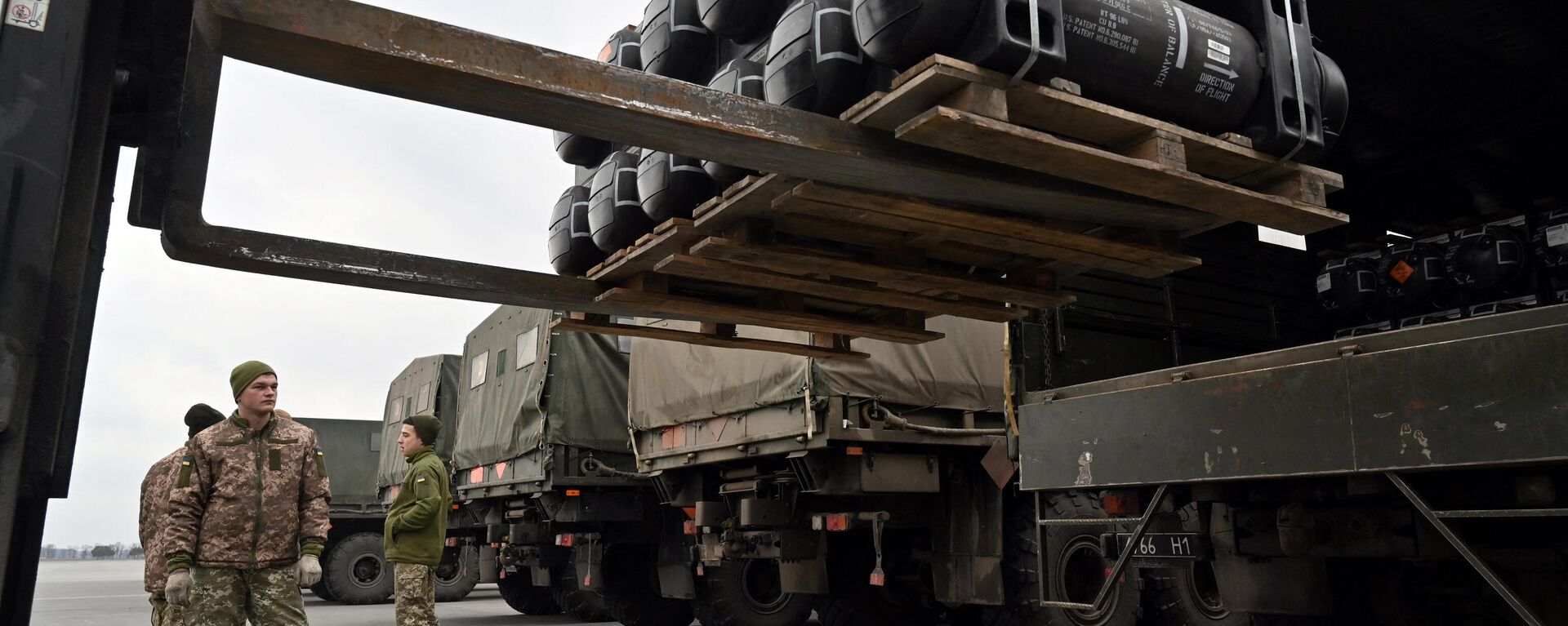Will Winter of Soaring Energy Costs & Looming Recession Corrode Europe’s Unity in Propping Up Kiev?
10:55 GMT 22.08.2022 (Updated: 17:15 GMT 12.04.2023)
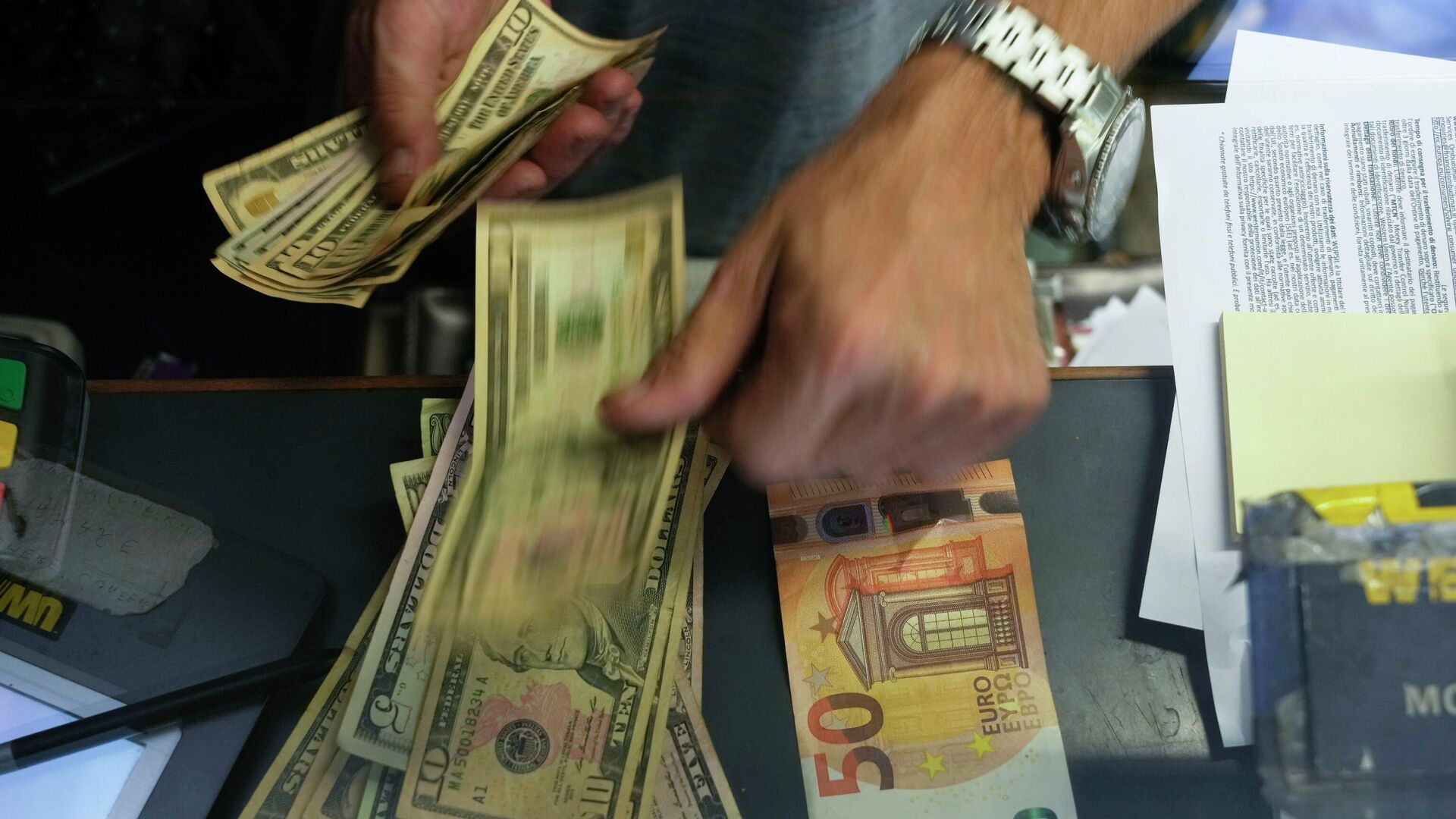
© AP Photo / Gregorio Borgia
Subscribe
After Moscow launched its special military operation in Ukraine, the US and its allies slapped sweeping sanctions on Russia's economy, businesses, media outlets, sports, and culture. However, the restrictive measures have taken a toll on Western countries’ economies as well, triggering sky-high inflation and soaring energy prices.
Prospects of a cold and bleak winter characterized by skyrocketing food and energy prices along with forecasts of a looming recession on the European continent have left officials fearful that the anti-Russia consensus could disintegrate, CNN reported.
As the cost of living crisis shows no signs of easing its relentless grip, multiple Western officials and diplomats, speaking on condition of anonymity, have indicated that Ukrainian President Volodymyr Zelensky might find it increasingly hard to count on the attention of European leaders.
Moscow launched its special military operation to demilitarize and de-Nazify Ukraine on February 24, responding to calls for help from the breakaway republics of Donetsk and Lugansk amid ceaseless attacks by the Kiev regime. The move triggered a swathe of sweeping sanctions against Moscow imposed by the US and its allies, including agreements targeting Russian energy.
Furthermore, the transatlantic alliance has been ramping up military support for Ukraine, pumping weapons to prop up the Kiev regime – something Moscow has repeatedly warned only serves to prolong the crisis.
The restrictive measures, however, have resulted in Western countries’ economies taking a beating, triggering sky-high inflation and driving energy prices to record numbers.
‘Winter Fuel Crisis’
In the aftermath of the operation, following in the footsteps of Washington and London, the EU pledged to end its dependence on Russian fossil fuels before 2030. In April, Brussels announced its intention to slash its demand for Russian natural gas by two-thirds by the end of 2022.
Accordingly, in Germany there is speculation about a possible energy collapse in the winter due to a halt in Russian gas supplies, with Economy Minister Robert Habeck urging citizens to reduce electricity consumption.
Germany’s capital Berlin has turned off the lights illuminating monuments in order to save electricity.
British households are bracing themselves for annual energy bills of up to £4,200 next January, more than three times the amount paid at the beginning of 2022. French shops are facing stiff fines unless they keep their doors shut while the air conditioning is on.
As Russia accounted for about 55% of Europe's total gas imports in 2021, the winter fuel crisis is uppermost in European officials and diplomats’ minds.
This is especially the case amid news that gas futures prices in Europe exceeded $3,000 per thousand cubic meters first time since March 8 at the opening of trading on August 22, according to data from the London-based ICE exchange.
As for oil, almost half of Russian exports of crude go to Europe, with the EU reportedly importing 2.2 million barrels of crude oil per day in 2021.
Accordingly, the costs of continuing to shower military, financial, and economic support upon Kiev authorities are starting to hit home with increasing force, Keir Giles, a senior consulting fellow at the think tank Chatham House told CNN.
That is why, in his virtual address to the G7 Summit, Ukrainian President Volodymyr Zelensky asked to "intensify sanctions" on Russia so the crisis ends before winter.
"That may well be why Zelensky said he wanted the war over before Christmas, because the real issues will be getting the West to stick to its promises in the long run," Giles said.
EU countries reached a deal to reduce domestic gas demand in their respective nations by 15% by March 2023. The baseline agreement suggests voluntary measures to reduce gas consumption, but also contains a trigger mechanism that will be activated if the voluntary measures do not yield the desired results and do not help save enough fuel.
Referring to the deal, opposed at the time by Hungary as "unenforceable," "unjustifiable," and outright "harmful," a senior European diplomat was cited as saying:
"Within the European Union, it will be very difficult and we must try to stick to our promise to cut off Russia when it comes to any profits from gas and other sources."
The deal has been criticized for being voluntary, with some officials reportedly fearing that when things reach a critical point, not all EU countries will be prepared to accept the self-inflicted woes.
‘No Clear End Point’
The Western strategy of pumping the Kiev regime with arms is also reportedly being increasingly questioned by officials. They are starting to see it as a short-term solution offering no clear end point, the report stated.
"At the start... It was politically quite easy to rally behind Ukraine and make the case for donating weapons and cash," a NATO source was cited as saying.
Germany shed decades of "pacifist" policies since the Second World War and boosted its own defense spending while also sending weapons to Ukraine. Following criticism of “dithering” and holding back arms, German Chancellor Olaf Scholz said in June his country would send heavy weapons, such as the IRIS-T anti-aircraft systems. Subsequently announced plans on the federal government website mentioned 20 rocket launchers with a caliber of 70mm, as well as 2,000 rockets.
France, when promising to deliver Caesar howitzers, Milan anti-tank missiles, and thousands of shells to Kiev, underscored it was “always with the red line that we will not become parties to the conflict.”
The UK pledged scores of artillery guns, hundreds of drones, and hundreds more anti-tank weapons to Ukraine. But European countries have been reducing their military commitments for Ukraine since April, Politico reported, citing the Ukraine Support Tracker of the Kiel Institute for the World Economy.
“Despite the war entering a critical phase, new aid initiatives have dried up,” the head of the team in charge of the Ukraine Support Tracker, Christoph Trebesch, was cited as saying.
According to the Tracker, Germany, France, and Italy have not made any significant new pledges to Kiev.
Furthermore, financial assistance to Ukraine from Western countries "dried up" in July, with Kiev receiving only 1.5 billion euros ($1.512 billion) last month. This coincided with Ukraine's Bureau of Economic Security admitting in early July that it had identified cases of the sale of humanitarian aid and military goods supplied by Western countries to Ukraine.
"Over time, the types of weapons we are sending have got more complicated, as has the training required to use them effectively. The good news is, these arms are helping the Ukrainians hold out. The bad news is, the longer the war goes on, the shorter on supply these weapons will be, making them harder to give up," an official told CNN.
"War fatigue" has also been cited by NATO officials.
"Back in February, it was easy to jump on the anti-Putin bandwagon. Now the war is in the boring strategic stage. There are fewer daily gains and losses and there are fewer photo opportunities," a NATO diplomat stated.
Officials weighed in on how corrosion could fray the anti-Russia coalition, doubting that countries might simply withdraw their support. However, the "parameters" of what outcome they support may ostensibly be reviewed.
Notably, some Western European countries such as Germany and France have publicly underscored the need for dialogue between the West and Moscow.
"Do we all still have the same view of the end game? Is it just getting back to the borders of before Russia invaded? Or is it back to pre-2014, before Russia annexed Crimea? And will we deal with Putin after the war or will he need to stand down. These are the long-term questions we need to be asking, but are not. It's better not to ask these questions right now," a European diplomat was cited as saying.
With the cost of living crunch forcing people across the continent to choose between heating their homes and eating, it will become more difficult for political leaders to justify spending funds and energy supporting a country they do not share a frontier with. Particularly as more and more countries do not perceive Moscow as the sole cause of such an existential crisis, the report stated.
There are believed to be fears among multiple Western officials that at some point, political leaders might opt to broker a peace deal and "undercut" the end game that Kiev has been seeking.
"There is growing concern in some quarters that if Ukraine appears to be losing ground to Russia this may accelerate calls for a negotiated settlement," Theresa Fallon, director at the Center for Russia Europe Asia Studies, told CNN, adding that once people sense that Kiev is on the losing side, “they may start to ask why do we continue to supply costly weapons to Ukraine at a time of economic stress.”
Ahead of political challenges, such as an election in Italy on September 25, the arrival of a new prime minister in the UK, and November midterm elections in the US, domestic policies may ultimately begin to dominate the agenda, according to European officials.
